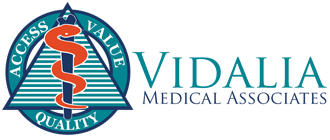The American Society for Gastrointestinal
Endoscopy (ASGE), founded in 1941 is the preeminent professional organization dedicated to advancing the practice of Endoscopy. ASGE promotes the highest standards of endoscopic training and practice, fosters endoscopic research, recognizes distinguished contributions to Endoscopy, and is the foremost resource for endoscopic education. ASGE, with more than 75oo members worldwide, served the medical profession and the public by developing and advocating responsible positions for the benefit of patients, the public and medical professionals. ASGE publishes the leading peer-reviewed endoscopic journal, Gastrointestinal Endoscopy (GIE).
American Society for Gastrointestinal Endoscopy
www.asge.org
Wellness
Colorectal Cancer is the 2nd leading cause of cancer related deaths in the U.S. It is totally PREVENTABLE!! Through identification of both average and high risk individuals, appropriate screening colonoscopy, and continue recommended colonic surveillance, the occurrence of colon and rectal cancer can be avoided. PREVENTION is the key.
The Endoscopy Center of Southeast Georgia’s Genetic Counseling Service offers an extensive method for identifying first degree family members of our patients, who are at a high risk for developing colorectal cancer. Multiple contacts are made with these family members to inform them of their high risk, including extensive literature on colorectal cancer prevention. The goal is to promote appropriate screening and prevention of colon and rectal cancer.
Metabolic Syndrome
Are you at risk for Metabolic Syndrome? The metabolic syndrome is a highly prevalent disorder that identifies individuals at risk for both cardiovascular disease and Type 2 diabetes. The abnormalities that constitute the metabolic syndrome-Abdominal Obesity, elevated lipids and triglycerides, hypertension, elevated blood sugar. If you have these risk factors you have a prognosis of metabolic syndrome.
Diagnosis of the Metabolic Syndrome
Risk Factor (At least 3 required for diagnosis)
Defining Level
Abdominal Obesity
Men
Women
Waist circumference
>102 cm (40 in)
>88 cm (35 in)
Triglycerides
> 150 mg/dl
High-density lipoprotein cholesterol
Men
Women
<40 mg/dl
<50 mg/dl
Blood Pressure
> 130/>85 mmHg
Fasting Glucose
> 100 mg/dl
From the expert panel on detection, evaluation and treatment of high blood cholesterol in adults. Executive summary of the third report of the national cholesterol education program (NCEP) expert panel on detection, evaluation and treatment of high blood cholesterol in adults (adult treatment panel II) JAMA 2001; 285-2486-2497
Treatment Options: Prevention: Weight loss, physical activity, ant treatment of the individual risk factors constitute the main strategies for treatment.
We calculate your risk factors for Coronary Heart Disease and treat then. What category are you in?
New Cholesterol Guidelines From NCEP ATP III
Risk Category
LDL-Cholesterol Goal (mg/dL)
If LDL Cholesterol Is:
Very High: CVD plus diabetes, high blood pressure, and cigarette smoking, or metabolic syndrome.
<70 (optional
100, initiate lifestyle changes and consider drug therapy.
High: CVD, diabetes, or multiple risk factors with a 20% chance of Ml in 10 years.
<100
100, initiate lifestyle changes and consider drug therapy.
Moderately High: Two or more risk factors with a 10% - 20% chance of Ml in 10 years.
<130(< 100 optional)
130, initiate lifestyle changes (100-129,consider drug therapy.)
Moderate: Two or more risk factors with a chance of Mi in 10 years of less than 10%
<130
130, initiate lifestyle changes.> 160, consider drug therapy.
Low: Zero or one risk factor
<160
160, initiate lifestyle changes.> 190, consider drug therapy.
